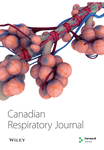Preservation of Pleural Integrity during Coronary Artery Bypass Surgery Affects Respiratory Functions and Postoperative Pain: A Prospective Study
Abstract
OBJECTIVE: To evaluate the role of preserved pleural integrity in postoperative pain and respiratory functional status in patients undergoing coronary revascularization.
METHODS: Two hundred forty patients undergoing on-pump coronary artery bypass grafting between March 2004 and February 2005 were included in the present study. The patients were prospectively randomized and divided into either an opened pleura (OP) group (n=120, patients with an OP) or a closed pleura (CP) group (n=120, patients whose pleural integrity was preserved). Preoperative patient characteristics were similar. Postoperative respiratory functions were compared between the groups by chest x-rays, respiratory functional tests and arterial blood gas analyses. Postoperative pain was compared by using a multidimensional pain score. All the tests were examined by the same blinded clinician.
RESULTS: The mean age of the patients was 60.4±8.8 years. Postoperative bleeding and the duration of hospital stay were markedly higher in the OP group than in the CP group. The incidences of atelectasis and pleural effusion were also significantly higher in the OP group (P<0.01). Respiratory functions and postoperative pain scores were better in the CP group (P<0.01 and P=0.008, respectively).
CONCLUSIONS: Preserving pleural integrity has beneficial effects on the respiratory functions and postoperative pain after coronary revascularization. The preservation of pleural integrity results in better respiratory function, decreased hospital stay and cost, and as a consequence, a better surgical outcome.




